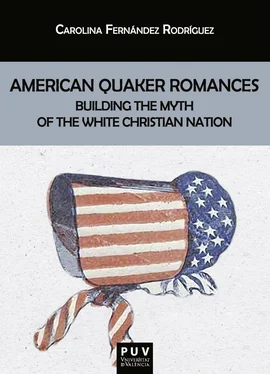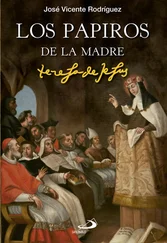the white conservative Protestants who make up the bulk of the market for evangelical Christian media began to mobilize politically around opposition to policies and cultural shifts that they saw as threatening the “traditional family” and, by extension, American civilization: advances in abortion rights and access to abortion, nofault divorce, gay rights, and (more covertly) desegregation […]. (2021: 194)
As happens in every cultural field, race also plays an important role in the rise of Christian romances. Barrett-Fox and Donnelly (2021) note that major publishing houses of Christian romances include few novels by or about people of color. If one is intent on reading books that deal with the romantic experience of people of color or interracial couples, one must look for such books among the novels published by imprints that focus on racial and ethnic minorities or by presses that concentrate on women of color, or by smaller presses. Harlequin and other major publishing houses are definitely not the answer. Thus, Harlequin’s Love Inspired line has few books which feature people of color as main characters, Barrett-Fox and Donnelly assure; Harlequin’s imprint on characters of color, Kimani, launched New Spirit in the mid-2000s promising to release African American Christian fiction, but it failed to do so, and its final books came out in May 2019 (Barrettt-Fox and Donnelly 2021: 202). Though there are few African American writers publishing African American Christian fiction, Beverly Jenkin being one of those exceptions, the situation is even more lamentable in the case of other minorities: “for readers seeking depictions of Latinx or Asian American characters, the choices are relatively few” (Barrett-Fox and Donnelly 2021: 202).
Despite its importance in both economic and cultural terms, the field of Christian romances has received little in-depth analysis. In 2005, Matthew Kapell and Suzanne Becker stated that “while there [was] considerable historic criticism of the secular romance fiction market, few [scholars] have ventured into the magnetism of the IRF [Inspirational romance fiction] market” (147). Years later, Barret-Fox and Donnelly present a similar picture, confirming that there is still “relatively little scholarship published on Christian romance novels,” adding that it comprises “only two books […][,] three book chapters, and fewer than a dozen articles” (2021: 204-205). Alternatively, when it has been studied, the field has been approached in a number of biased ways. John Markert, for example, refers to Peter Darbyshire’s article, “The Politics of Love: Harlequin Romances and the Christian Right” (2002), as proof of those prejudiced approaches; in particular, he criticizes Darbyshire’s assessment of the field as based on only “one Harlequin Love Inspired novel, Heiress ” (Markert 2016: 212). Barrett-Fox and Donnelly also point out that the existing scholarship tends to focus on “the genre’s messages about gender” and “how those messages resonate with broader evangelical teachings, or on the relationship between readers and their texts” (2021: 205). Barrett-Fox and Donnelly cite as examples the articles written by Laura Clawson (2005) and Neal Christopherson (1999), both of which show that “the messages about gender tend toward the conservative” (2021: 205), and Peter Darbyshire’s already referred to 2002 article, where Christian romances are presented as nothing but “Religious Right propaganda” (Barrett-Fox and Donnelly 2021: 205).
Notwithstanding the lack of proper critical attention, the popularity of Christian or inspirational romances in the past few decades, especially of novels featuring Amish protagonists (amply studied by Valerie Weaver-Zercher in her 2013 monograph, Thrill of the Chaste: The Allure of Amish Romance Novels ), is undeniable, as is, to a lesser extent, the appearance of various subgenres spawned by the Amish craze, that is, romances with Mennonites, Moravians, Quakers, etc. (Weaver-Zercher 2013: 3). Given those circumstances, there is a need to further analyze the reasons that have led, and continue leading, countless readers to these so-called “sweet” or “clean” romances. This book will therefore palliate that lack of scholarship on Christian romances to some extent, though, as mentioned, it will focus on Quaker romances regardless of whether they are Christian or secular. Besides, only historical romances (often referred to in the romance community as “historicals”) will be taken into account. Many Christian romances are indeed historicals, and that also happens to be the case when Quaker characters are portrayed. According to Barrett-Fox and Donnelly, “[t]he setting of the books in bygone days allows for readers dismayed at contemporary culture to run to a romantic (and rural) past in which they imagine life—including gender roles and ideas about romance, love, and sex—was simpler” (2021: 196). Barrett-Fox and Donnelly also point out that historical details in these novels are intended “as evidence for the authenticity of the story and the expertise of the author” (2021: 196). More poignantly, Lynn Neal’s assessment of Christian historicals leads her to state that these narratives “transform history from a series of random events into a carefully ordered design that demonstrates God’s romance with humanity” (2006: 184). To be more precise, given my exclusive concern with American historicals, they demonstrate God’s romance with America, and a White America at that, as will be proved.
Comparatively speaking, historical romances featuring Quaker protagonists, which comprise the primary sources selected for this book, constitute a small section of the Christian romance industry, but one that presents readers of inspirational fiction with a paradox that is worth exploring. Despite Darbyshire’s claim (2002) that Christian romances unequivocally promote the message of the Christian Right, this book’s thorough analysis of thirty-nine romances with Quaker protagonists will present a more complex reality. In general, the historical romances under scrutiny seem to offer a vision of U.S. history that stresses the country’s supposed origin as a White and Christian nation where men and women occupied separate spheres, in accordance with the tenets of the Christian Right. However, by featuring Quaker protagonists (typically females, though there are also some male main characters) they capitalize on the reputation of Quakerism, traditionally associated with progressive attitudes and the advancement of social justice, especially the abolition of slavery and women’s suffrage.
Admittedly, as will be seen, heroines of Quaker romances, like those of Christian romances more generally speaking, often devote substantial amounts of time to spiritual considerations, advocate the sanctity of marriage and promote traditional family values, but it is also true that their concern with social justice repeatedly leads them to engage in subversive behavior and to question the status quo in terms of class, gender issues, and, to some extent, race relations. To name but a few examples, these romances feature heroines that are active on the Underground Railroad, dare to challenge the hero on account of his contribution to slavery, demand the right to speak in public meetings or even enjoy a mixed-race romantic affair, if only temporarily. Close reading of these novels complicates an all too easy conclusion that Christian romances simply endorse the Christian Right agenda: they are a product of present-day America’s conflicted relationship with its history of abusive race and gender politics, and the result of the country’s tension between resisting and advocating social change. It should nevertheless be noted that gender roles and race relations are often treated differently in these religious romances. Authors tend to embrace many of the issues on the liberal feminist agenda, but their treatment of race relations is more ambiguous and even questionable.
Читать дальше












